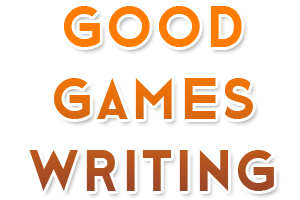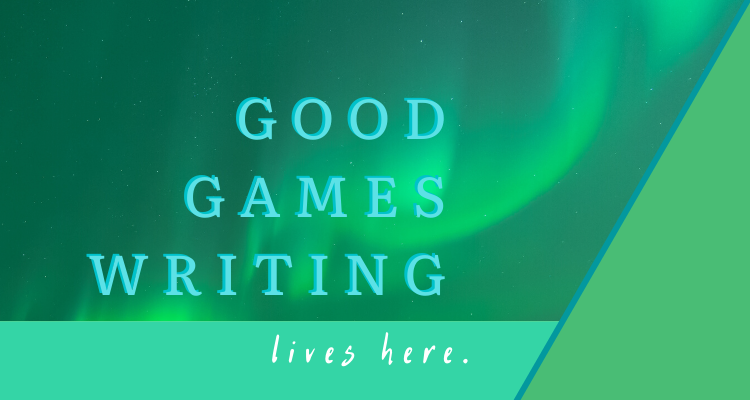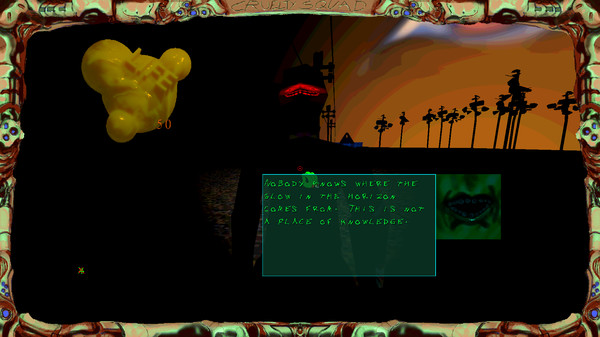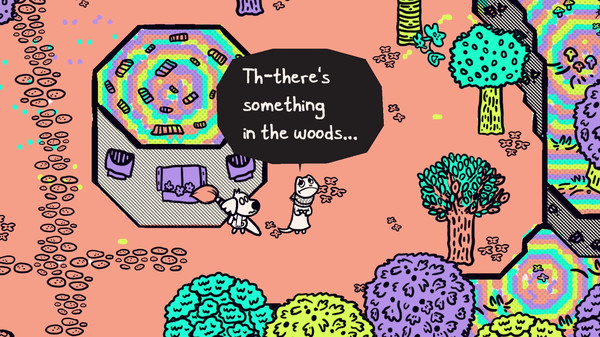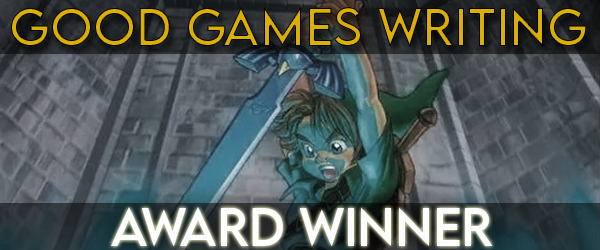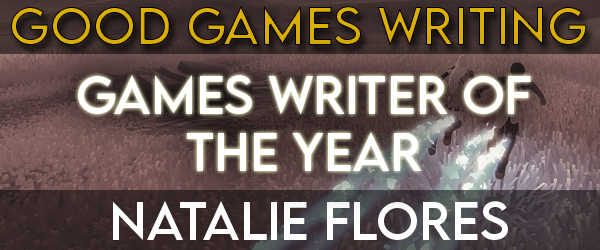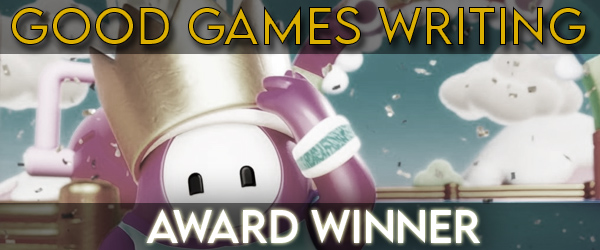The best games writing from around the web.
The Weekly is your round-up of all the best in games writing and related spaces. Reviews, news, features, and more await you each week as the curators of Good Games Writing scour the Internet for the best of the best. Some themes are for older audiences.
We’re back for another school year — footloose and fancy free. Of course, this year brings with it new COVID-19 challenges as school jurisdictions tackle surging case numbers across North America, all while trying to return to ‘normal’. For our part, Team GGW looks a bit different this year. Our Larissa Jones is the lead curator for the year. We’ve also brought in Sebastian Artola who joins as our new Community Manager – which means we’ll be working on creating community once again. And Adam Alvernaz joins as Outreach Coordinator…a role we’ll talk about more soon. We’re happy to be back.
Stay happy. Stay healthy. Here’s the update!
STUCK IN A LOOP
DEATHLOOP commentary is all over the place – a fact that makes the search for good games writing all the more interesting. On our first pass of coverage we’ve found a few reviews that made us think, challenged our own thoughts on the game, and otherwise yelling at our computer monitors like totally normal people.
At Ars Technica, the ‘sloppy’ nature of the game makes it feel like an unfinished product, rushed out for release with a vanishingly small world in both the map sense and world building sense.
Deathloop‘s missions eventually string together a vague story of the Visionaries’ crisscrossing relationships. Clearly, someone at Arkane tried building a cohesive world where these characters grapple with the high-concept weirdness that keeps the islanders not only trapped in a time loop but also able to interact with clones of themselves. When it’s good, it’s classic, Bethesda-at-its-best storytelling. There are a few moments where Deathloop‘s plot shines in unique, only-in-games ways—especially when you sneak up on certain characters talking to clones of themselves. But such highs only make Deathloop‘s general plot failures all the more disappointing.
Over at Metro, their review unironically bandies the term roguelike about while lashing out at the ‘immersive sim’ label oft applied to Arkane’s games. The criticism is pointed throughout, with a line about a ‘magic’ submachine gun catching us off guard, though it doesn’t hesitate to point out the game’s multiple strengths, either.
Jon Bailes’ review at Video Games Chronicle feels more linear than other reviews we’ve read; considering this is a game about time loops, we consider that a compliment. The review itself tracks well – ideas flow without interruption – and this review stakes its audience out early on, never waffling on it. (That audience? Those that know Arkane’s games and otherwise are familiar with the marketing for this one.)
The loop is (rightly) at the centre of Alex Donaldson’s critique for VG247. Like much of the other criticism we’ve read on DEATHLOOP, there’s plenty of reverence for Arkane’s other games, but here the critique doesn’t assume reader familiarity. It’s helpful for those of us that haven’t played Prey, for instance, but the references go to out-of-scope releases like the controversial Twelve Minutes as well. Indeed, Donaldson deftly avoids namedropping all the game’s resources, describing one instead as something “you collect while exploring and fighting”. This type of accessible writing is helpful for general audiences and we want more of it.
LINE OF THE WEEK: “Art deco buildings combine with 1960s kitsch and the towering painted billboards of Weimar Berlin, building a glorious picture of a ruinous, elitist society and spectacle.”
Keith Stuart on DEATHLOOP’s world.
We pause, for a moment, to recognize an Arkane themed piece that isn’t DEATHLOOP, applauding RPS for re-examining a four year old game. Hirun Cryer interviews the narrative team of Dishonored: Death of the Outsider who reveal all sorts of insights into that series’ and its world building. Future examinations of Arkane’s work are better examined through this lens and new information provided about the “moral world”.
Rounding out the section is WIRED‘s review noting, in its headline, the reflection of time and history DEATHLOOP presents that’s later described as a “profound meditation”. The idea that every aspect of our present can be reshaped represents a foundational point for many ideologies – after all, two of the four main points of ideology are linked to time: Our interpretation of the past and our hopes for the future. Gabriel Solis weaves in such philosophy throughout his review, highlighting the nonlinear narrative throughout, while keeping our minds, as readers, engaged. It’s a masterful critique.
HISTORY
While Solis’ piece examines history through the lens of Deathloop and philosophy, a handful of other pieces tackle the subject, and each is worth reading.
Staying on WIRED, Katherine Brodsky asks the question “can a game get young players interested in Holocaust history?” In some ways the answer seems obvious – yes. Our Evan McIntosh has taught social studies at every level from Kindergarten to Grade 12 with lessons on the Holocaust, often through short novels, starting as early as Grade 4. If books can be an ‘in’ than surely games can be!
Brodsky interviews the writers of The Light in the Darkness about their process and goals: the game strives for “accuracy and realism” in depicting the conditions leading to the Holocaust. One of the co-writers is a Holocaust survivor. The writers detail the challenges Holocaust education faces: few parts of the United States mandate education on it; many Holocaust education groups are led by an older generation who don’t necessarily understand gaming’s breadth; fewer and fewer survivors means our collective memory is dissipating; the list goes on.
Meanwhile, Natalie Raine interrogates Blackhaven, a game following a ” [black] college intern named Kendra Turner who’s working alone at a museum, while the rest of the staff is on holiday”, faced with daily microaggressions and a museum chock full of whitewashed history. Both the game and the critique feature reminders about the history that hasn’t been widely taught — and the fraught nature of progress on this front as the KKK is painted in a kinder light in jurisdictions like Texas (and even here in Canada).
Gita Jackson once again points out the history of gaming failing to accurately represent black hair – with developers Jeryce Dianingana and Jane Ng providing commentary explaining the longstanding issue. God of War Ragnarok may finally break this trend.
When thinking history and video games, Civilization is likely top of mind for many gamers. Matt Jarvis’ history of the series is chock full of goodness – particularly as it delves into the (perhaps forgotten) history of its tabletop originator. Civ fans and tabletop players alike have a worthy read here.
FIVE MORE TO READ
- Jack Yarwood reports on the plight of developers trying to get credited for their work on games. (The Washington Post)
- Michael Higham offers the ultimate Lost Judgment review – chock full of Yakuza knowledge. (Fanbyte)
- Paige Detlefsen talks Zelda vibes in this Eastward review. (RPG Site)
- Matteo Lupetti interviews the creators of various narrative driven multiplayer games on what makes those games such a rarity. (Fanbyte)
- Leah J. Williams provides an insight into Sydney’s largest gaming studio – World of Tanks dev Wargaming. (Kotaku AU)
Quick Hits:
Bailes, Jon. “REVIEW: DEATHLOOP IS ONE OF THE SMARTEST GAMES OF THE YEAR” (Video Games Chronicle: September 13, 2021) <www.videogameschronicle.com/review/deathloop/>.
Brodsky, Katherine. “Can a Game Get Young Players Interested in Holocaust History?” (WIRED: September 14, 2021) <www.wired.com/story/the-light-in-the-darkness-voices-of-the-forgotten-holocaust-history-game/>.
Cryer, Hirun. “The making of Dishonored: Death Of The Outsider, and how Arkane killed a god” (Rock, Paper, Shotgun: September 17, 2021) <www.rockpapershotgun.com/the-making-of-dishonored-death-of-the-outsider-and-how-arkane-killed-a-god>.
Donaldson, Alex. “Deathloop review: a thrilling, slick adventure – and Arkane’s best game yet” (VG247: September 13, 2021) <www.vg247.com/deathloop-review-a-thrilling-slick-adventure-and-arkanes-best-game-yet>.
GameCentral. “Deathloop review – the party that never ends” (Metro: September 13, 2021) <metro.co.uk/2021/09/13/deathloop-review-the-party-that-never-ends-15249265/>.
Jackson, Gita. “‘God of War: Ragnarok’ Shows How Games Can Get Black Hair Right” (Vice: September 16, 2021) <www.vice.com/en/article/wx534n/god-of-war-ragnarok-shows-how-games-can-get-black-hair-right>.
Jarvis, Matt. “The Civilization board game pioneered epic strategy a decade before Sid Meier” (Dicebreaker: September 9, 2021) <www.dicebreaker.com/games/civilization/feature/civilization-history-sid-meier-francis-tresham>.
Machkovech, Sam. “Deathloop game review: Can Bethesda rewind this time loop and try again?” (Ars Technica: September 13, 2021) <arstechnica.com/gaming/2021/09/deathloop-review-a-dishonorable-bethesda-discharge/>.
Raine, Natalie. “Blackhaven confronts the truth behind historical whitewashing” (The Indie Game Website: September 15, 2021) <www.indiegamewebsite.com/2021/09/15/blackhaven-confronts-the-truth-behind-historical-whitewashing/>.
Solis, Gabriel. “Review: Deathloop Is a Unique Reflection on Time and History” (WIRED: September 16, 2021) <www.wired.com/review/deathloop-game/>.
Stuart, Keith. “Deathloop review – chaos on repeat” (The Guardian: September 15, 2021) <www.theguardian.com/games/2021/sep/15/deathloop-review-chaos-on-repeat>.
